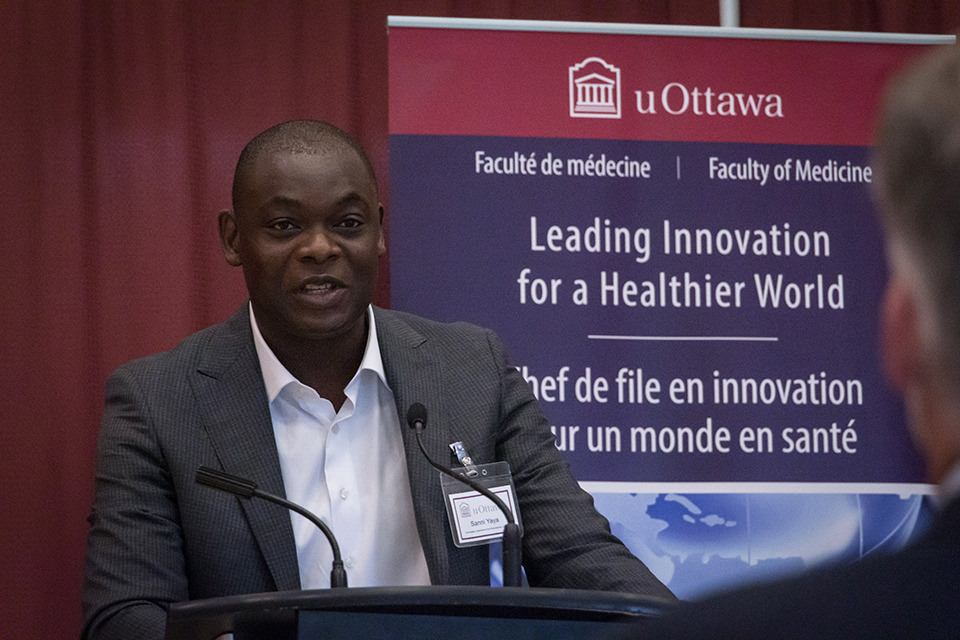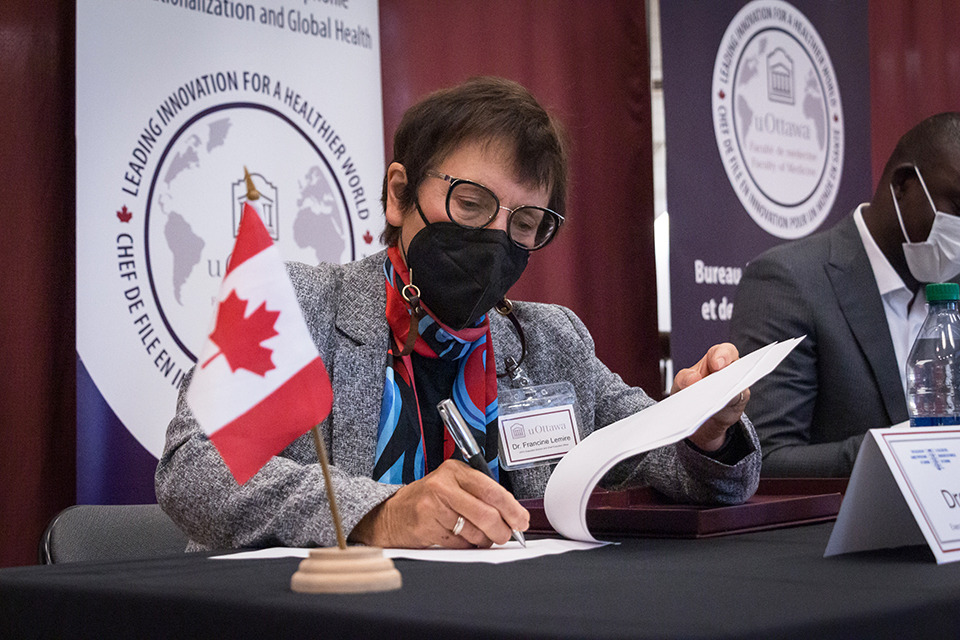A new, first-in-Canada MOU between the Faculty of Medicine and the College of Family Physicians of Canada (CFPC) reinforces the Faculty’s commitment to social accountability, this time in the field of family medicine.
The Faculty formalized the preferred partnership in a signing ceremony on September 8 at Roger Guindon Hall. The memorandum of understanding will give the Faculty’s Department of Family Medicine (DFM) access to a wide network of international collaborators, as well as opportunities to share expertise and resources on a global scale in education and research training in the field of family medicine.
“The intent is to train professionals of excellence to serve society, who base their work on respect for human life and the dignity of people,” states the MOU, which will foster academic exchange, international scholarly communication, and strengthening ties in the areas of family medicine, interdisciplinary education and health equity.
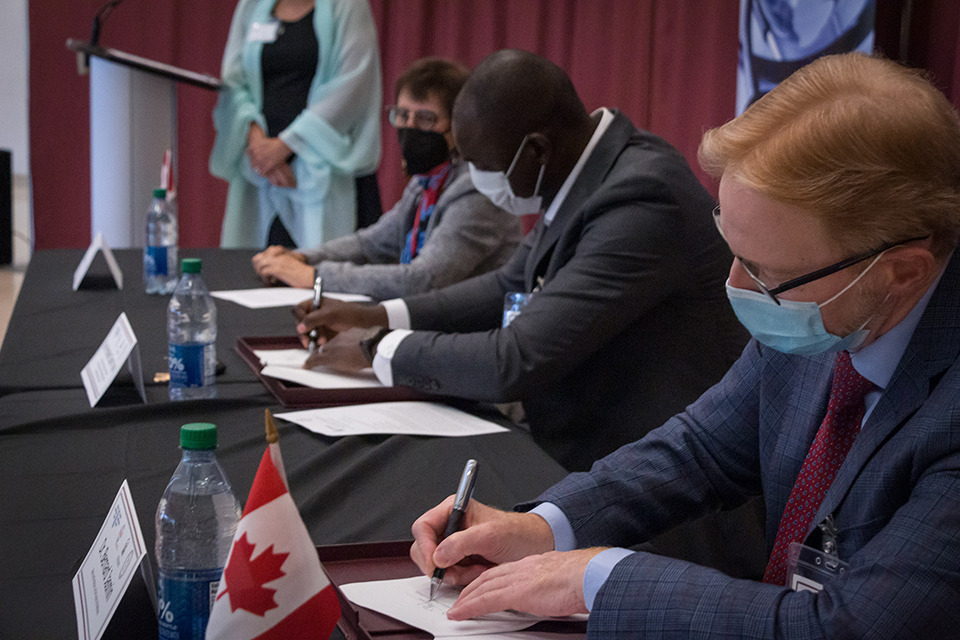
Dr. Clare Liddy, chair of DFM, recently led the development of the department’s renewed strategic plan, in which a fourth pillar joined their initial three of education, research and its people—that of social accountability.
“Several people in our department have been actively working on global health initiatives and the health of refugees both locally and abroad,” says Dr. Liddy. “I am personally very committed to supporting faculty who were voluntarily sharing their expertise beyond the four walls of our institution.”
One such faculty member is Dr. David Ponka, a professor in the DFM and a family physician with Bruyère Continuing Care who had worked with a group of physicians from the Bruyère Academic Family Health Team to establish a family medicine training program in Guyana. Among his many hats, Dr. Ponka had recently become national director of CFPC’s Besrour Centre for Global Family Medicine.
Dr. Liddy was already very familiar with the Besrour Centre and its work to stimulate advancements in family medicine globally through education and training, research, and building worldwide relationships. A family physician, a senior investigator with the Bruyère Research Institute and a Clinical Investigator at the C.T. Lamont Primary Health Care Research Centre, Dr. Liddy has herself made original and crucial contributions to research and knowledge-building in family medicine in Canada and beyond.
A partnership with the CFPC Besrour Centre thus seemed a natural fit for the Department.
“I’m always looking to promote the incredible expertise in family medicine that we have here in Ottawa,” she says. “Dr. Ponka and I had several discussions about possible collaborations between Besrour and our department of family medicine.”
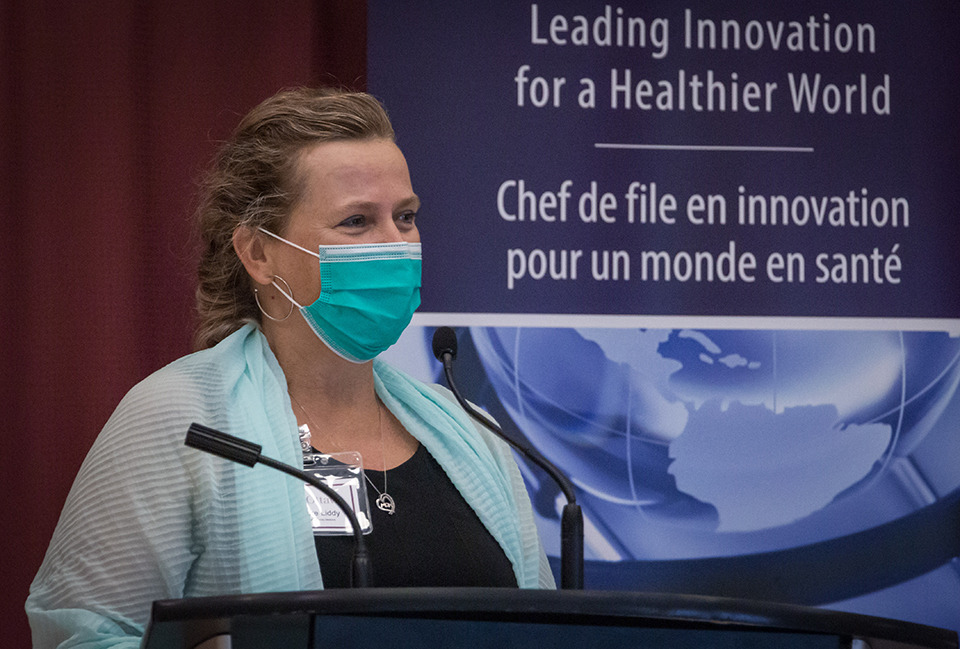
The resulting partnership is the first formal MOU in Canada between a university’s department of family medicine and the Besrour Centre.
Given the Centre’s collaborations with several international organizations, Dr. Ponka says the move is an ideal opportunity for the Faculty to increase its local and global impact, reach new corners of the world, and further its network of partners.
“This occasion is about people from all disciplines coming together for global health,” said Dr. Ponka in his remarks at the ceremony. “We realize that as a global community, we must work more closely together.” (Read Dr. Ponka’s full remarks at right.)
The MOU sets the stage for global collaboration on joint projects, with a focus on training individuals to lead research initiatives in family medicine and in primary care. The Faculty is excited to share its ample resources and expertise from an education perspective.
“We’ll bring to the table our experience in bilingual medical education, family medicine research and leadership at both the undergraduate and postgraduate family medicine levels,” says Dr. Liddy.
The MOU aligns well with the focus on social accountability held by both the Department and the Faculty itself.
“We are very proud as a department to be the first university in Canada to establish this collaboration,” Dr. Liddy says, “and I’m delighted that the Faculty and uOttawa as a whole has supported the partnership.
“Together, we are advancing the discipline of family medicine globally.”
Consider supporting the University of Ottawa.
The International and Global Health Initiatives fund supports the improvement of health and health equity, globally.
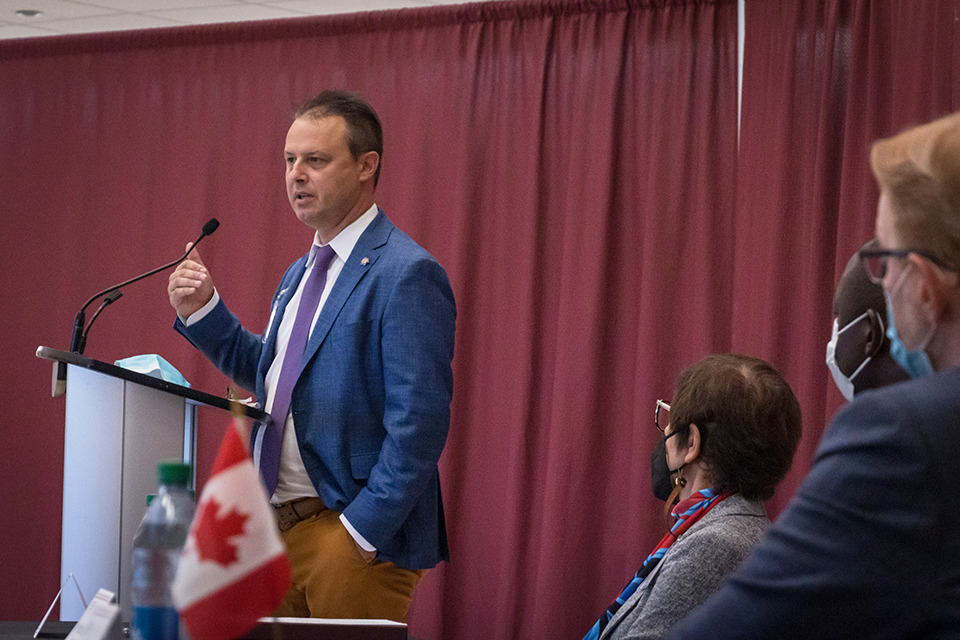
Coming together for global health
Dr. David Ponka delivered the following remarks at the September 8 signing ceremony.
This occasion is about people from all disciplines coming together for global health, but I am a family doctor so let me share a story.
The last time I worked clinically overseas, it was just a 6-hour flight from Paris, but in the middle of a desert. An actual desert, yes, but also a food desert and a medical desert. Mothers and fathers routinely carried the bodies of their limp children out of the field hospital after succumbing to malnutrition or even more commonly, malaria. And what struck me the most was that they would still thank us for our efforts on the way out, probably because we were the first medical team they had ever seen. This is what strikes me the most now: 50% of the world still looks like this, in 2022. We, as a global community, must do better.
Skip some years ahead: the world faces a major pandemic and we realize that as a global community, we must work more closely together. We are oscillating between acute and chronic phases of the pandemic and realizing how siloed our approaches can be. Not only siloed between countries but between disciplines. The Besrour Centre for Global Family Medicine has positioned its projects to study and promote integrated health systems and early results from project such as FM Vax may not be surprising. Integrated health systems perform better. What may be surprising is that some low and middle income countries (LMICs) do this better than we do.
Any partnership begins with shared values. uOttawa and the CFPC share many values including this value of reciprocity and collaborative learning across contexts. But let me also finish with another shared value, that of bilingualism. Canada may have its work to do to integrate its health system but we are still seen, rightly, as a beacon of bilingualism and diversity and pluralism. We feel accountable to our populations, inside and outside of Canada and this partnership is cemented by this original and final value: that of social accountability. Je suis très fier de cette collaboration, et nous souhaite beaucoup de succès, ensemble, à aider les populations du Canada et du monde.
Merci.
